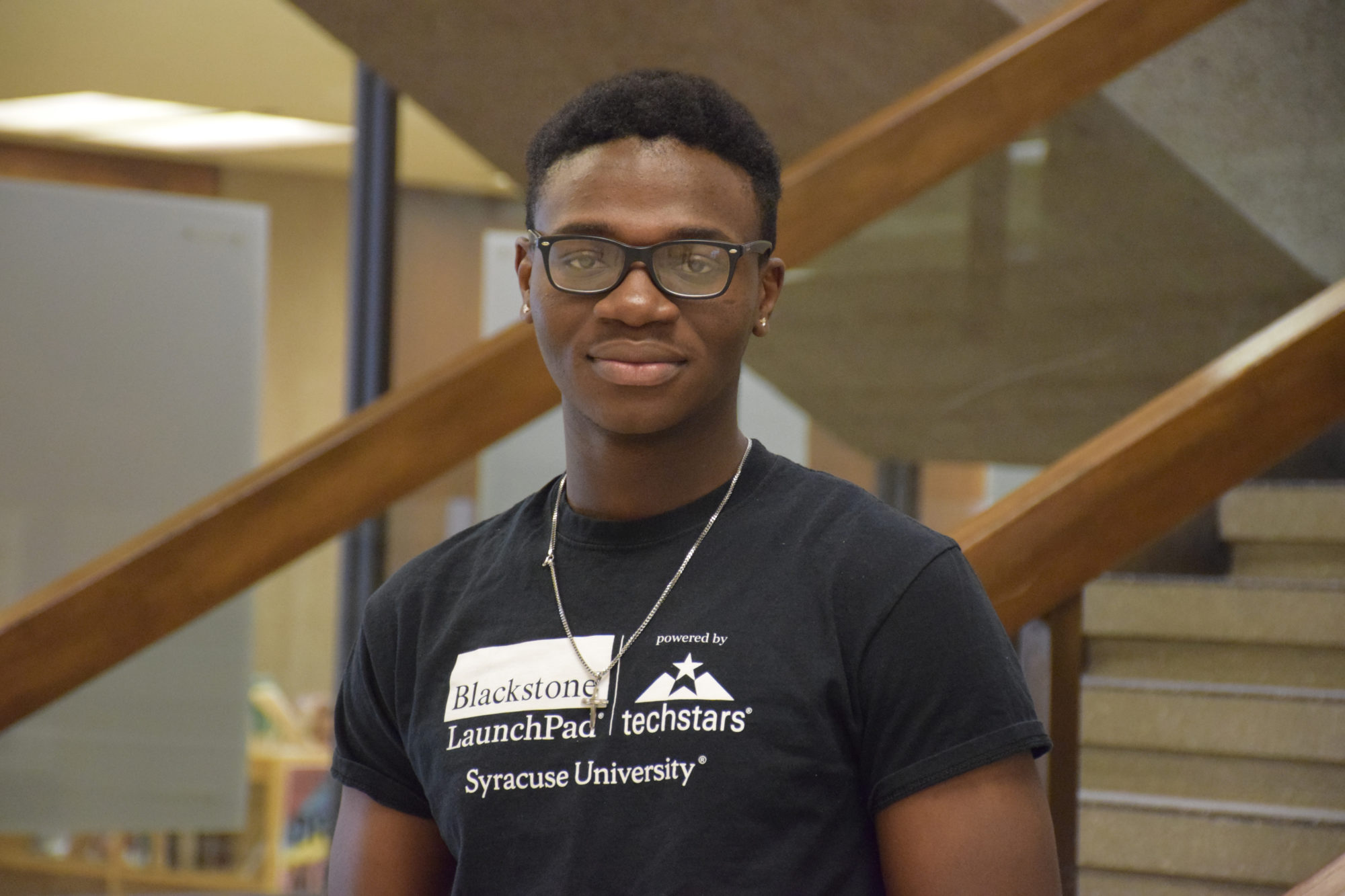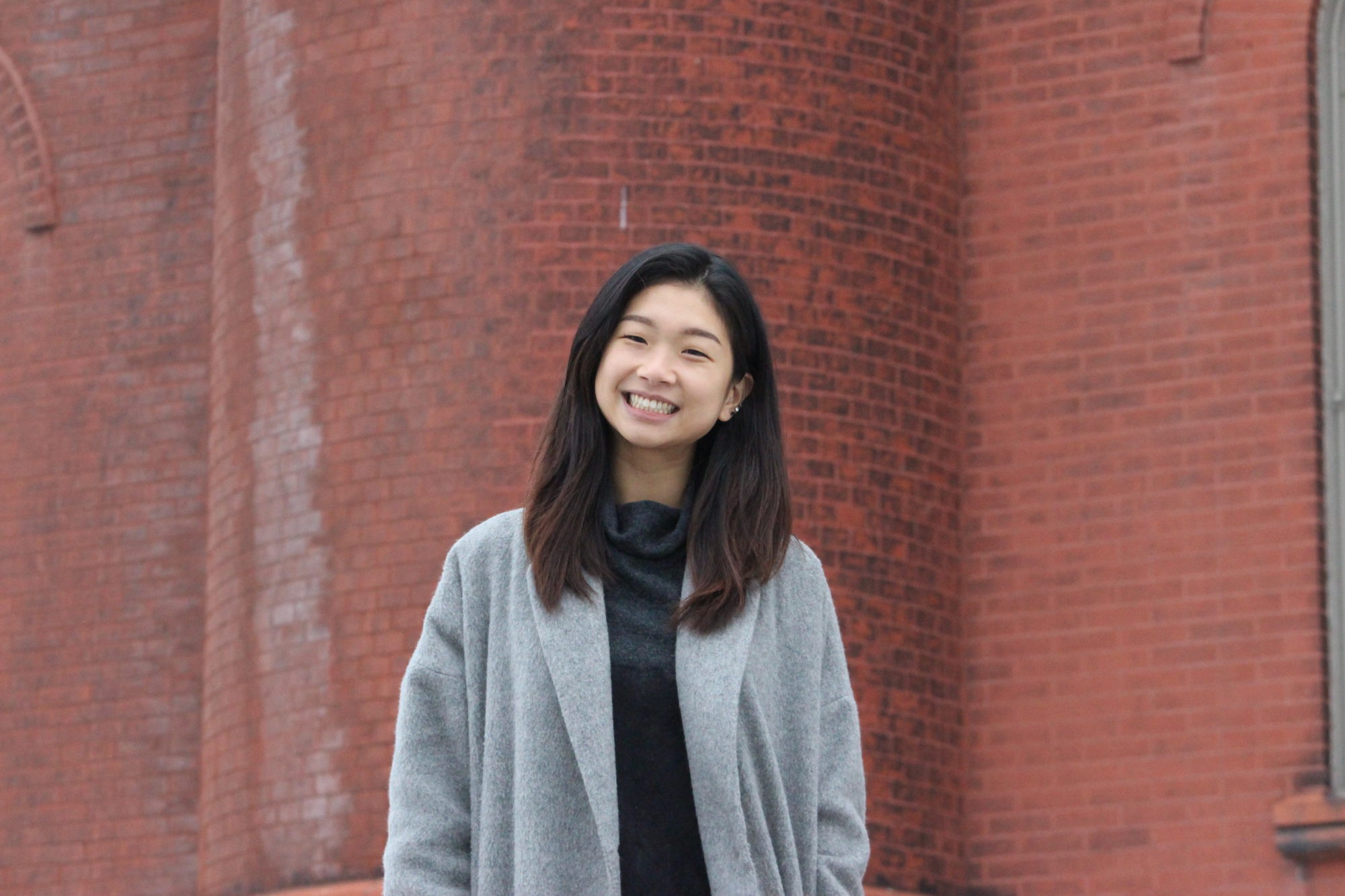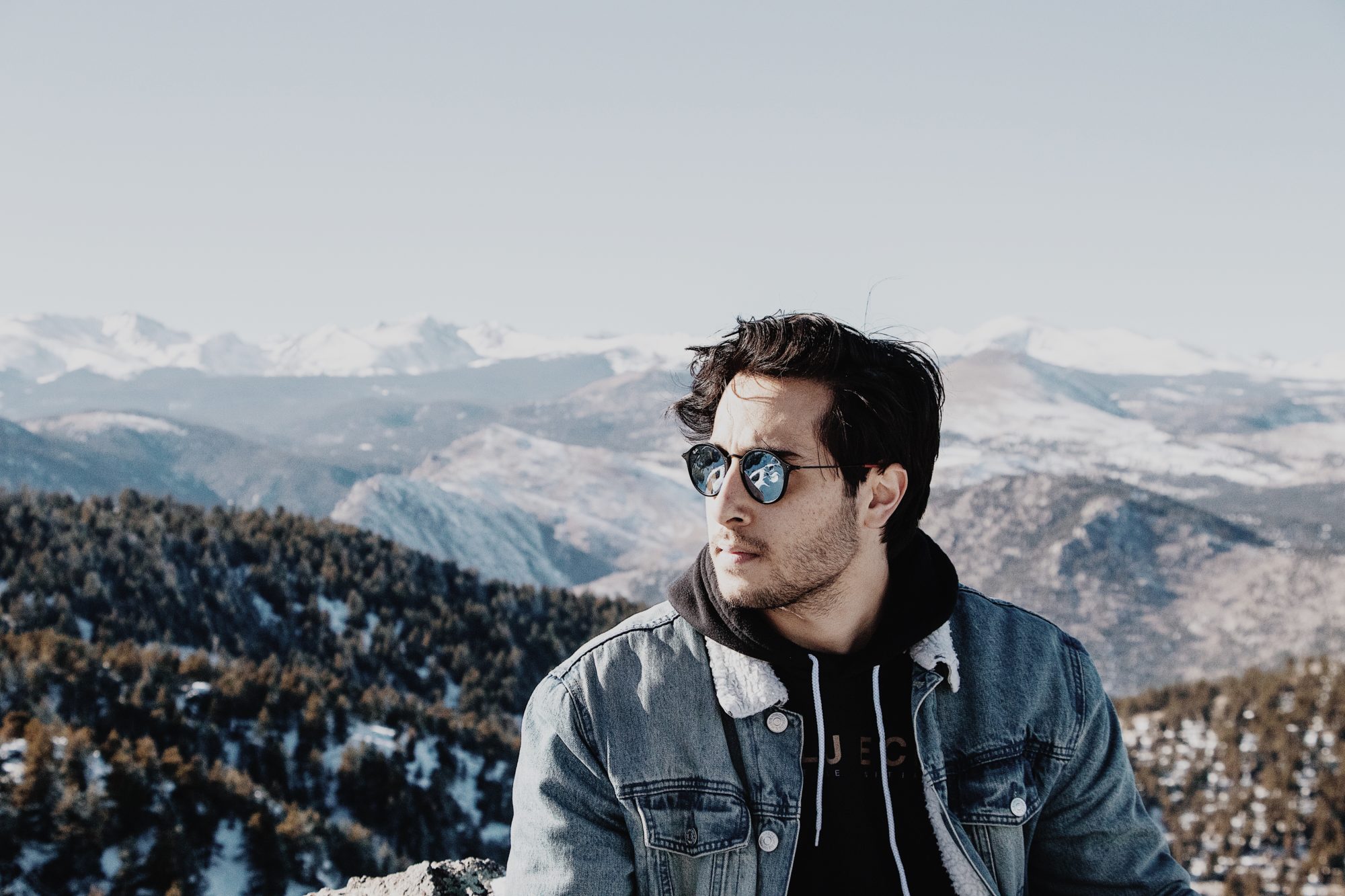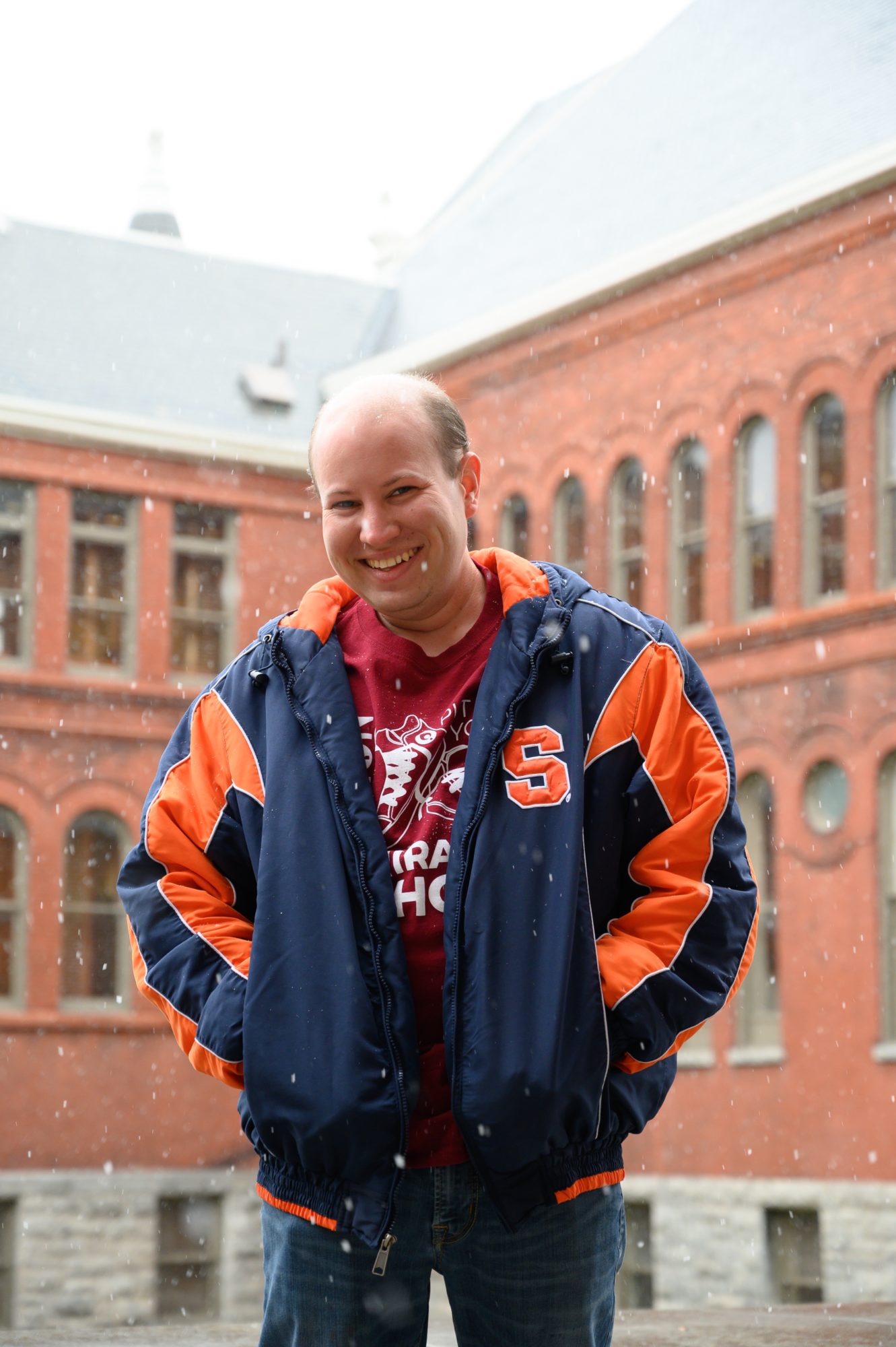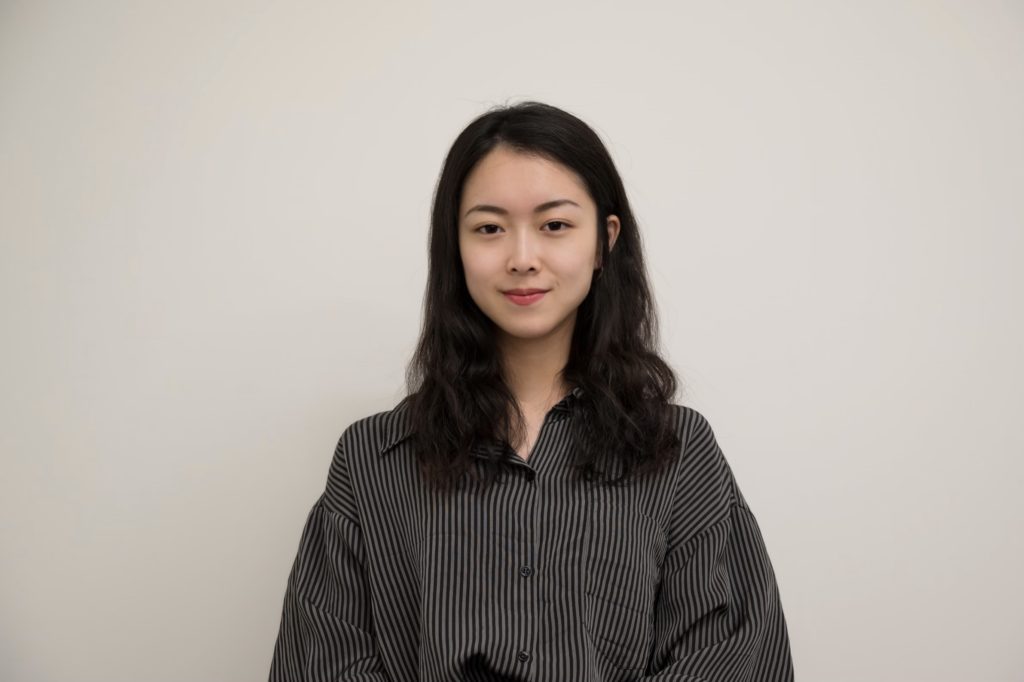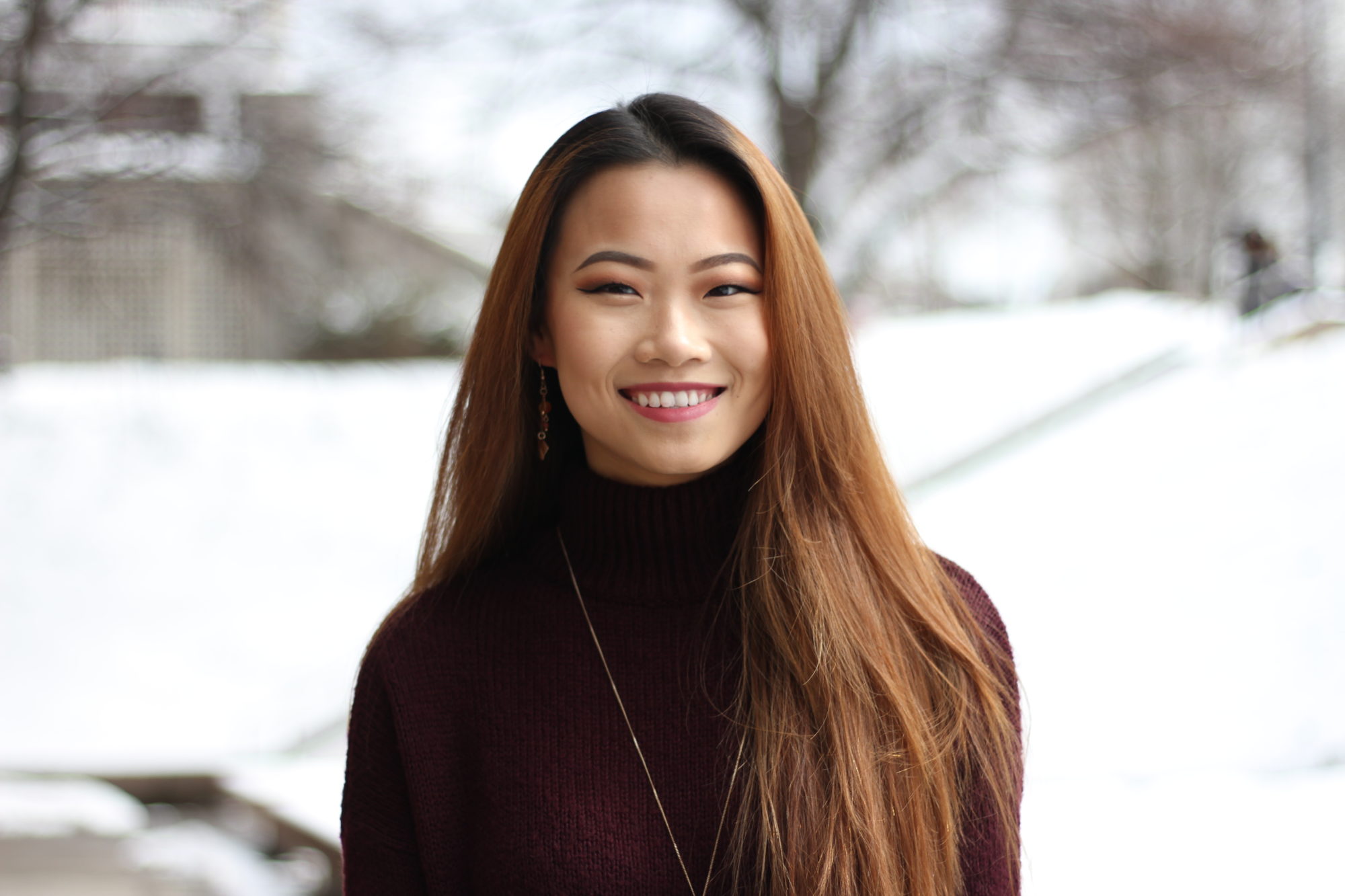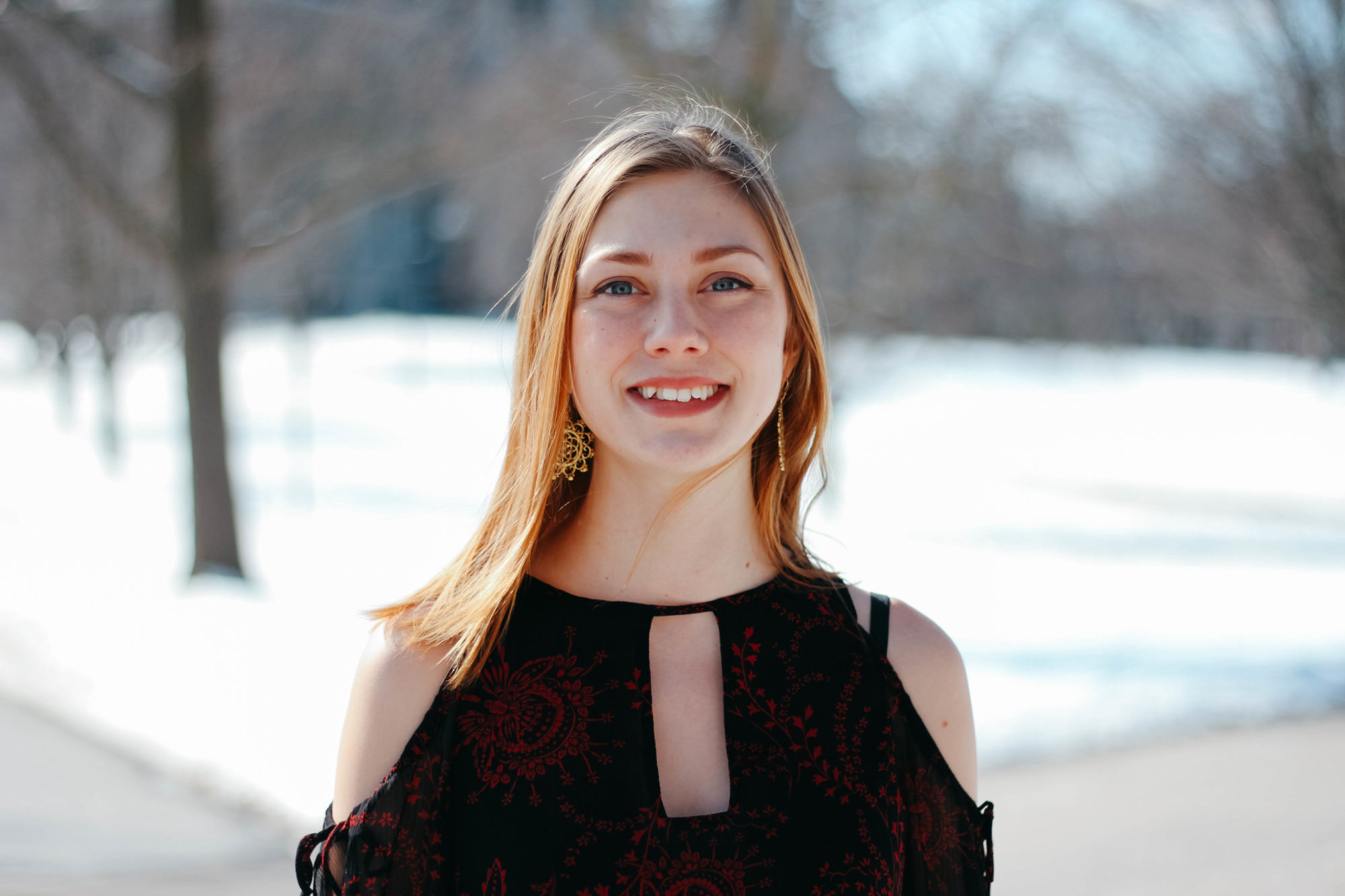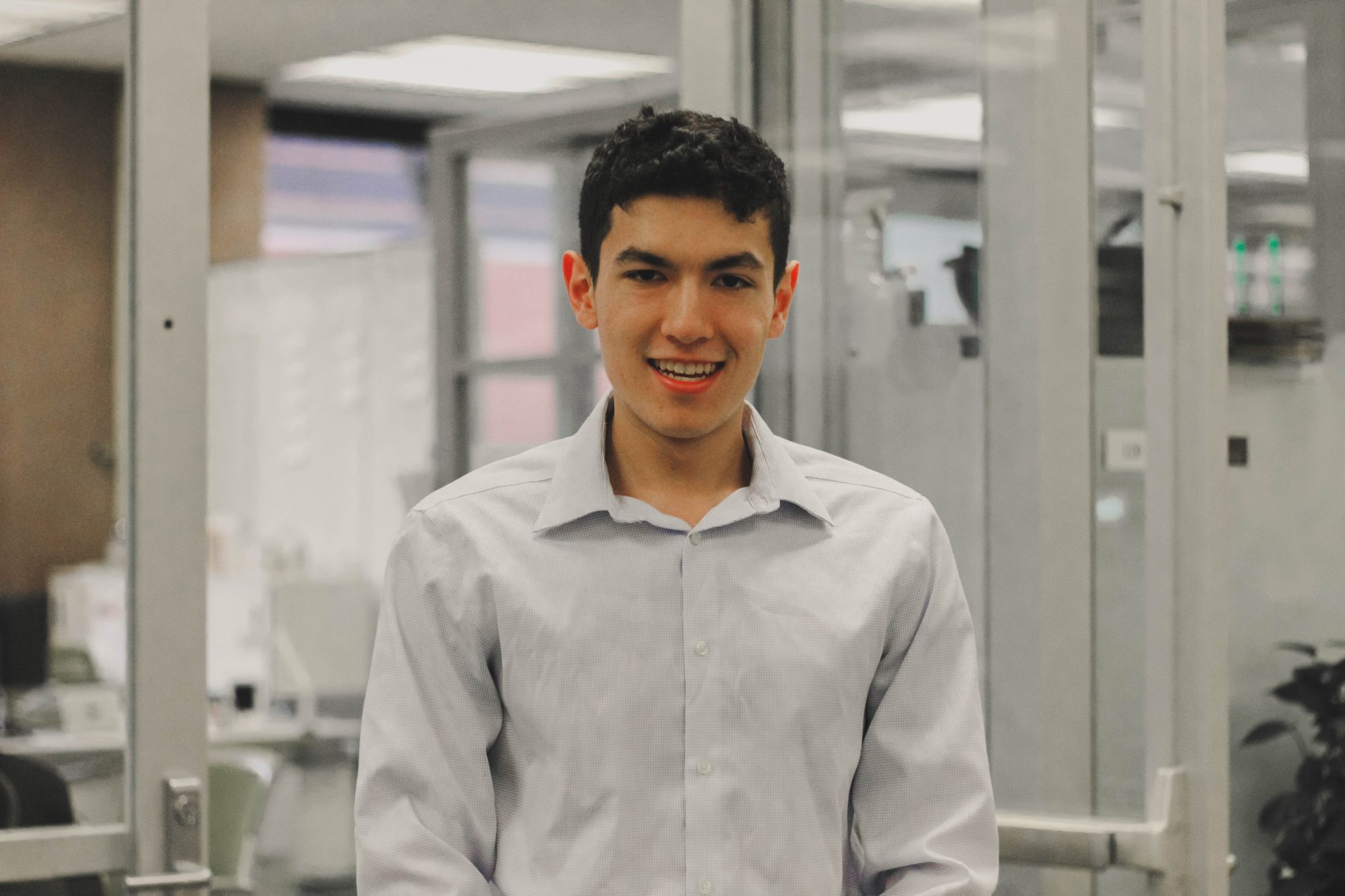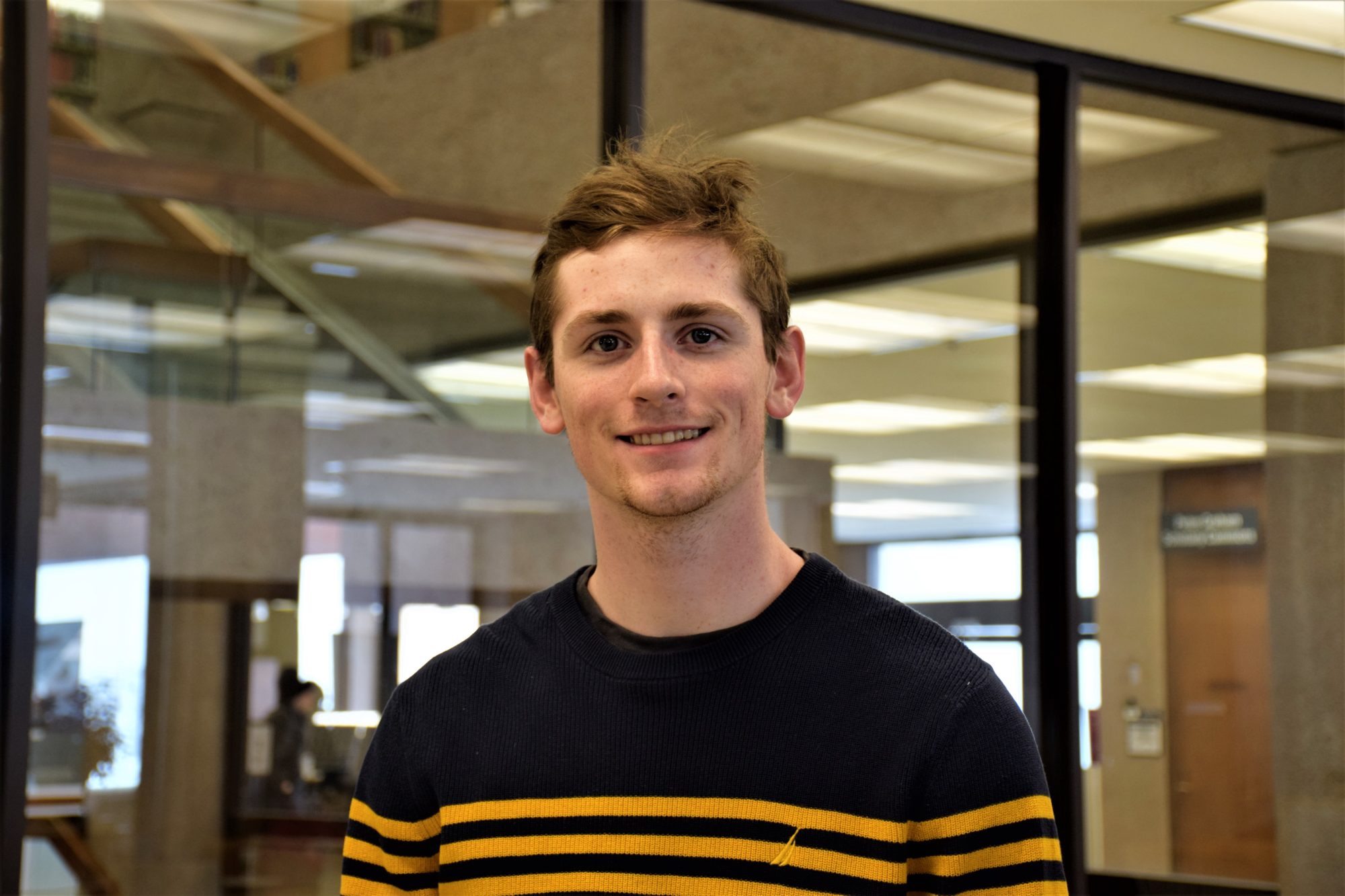
It’s a cold Wednesday morning when Bobby Manning, a junior in the S.I. Newhouse School of Public Communications, walks into the Blackstone LaunchPad for an interview with Jalen Nash. They launch into a discussion of the latest news in basketball, Tobias Harris to the 76ers. “This new threat on the perimeter makes them a contender,” argues Manning. After agreeing on this point, they transition into a conversation on politics, discussing the growing pool of Presidential candidates, then across a spectrum of topics. The discussion turns to how journalists are redefining themselves as innovators, reflecting Manning’s own interests and entrepreneurial trajectory. “These are my passions: sports, music, politics, history. These are just a part of me. Interacting with them through writing, podcasting and DJ’ing — that’s not a hard step for me to take.”
Interview by Blackstone LaunchPad Global Media Fellow Jalen Nash:
Jalen: Tell me about your childhood. Who were some of your early role models growing up?
Bobby: I would spend a lot of time with my grandpa and he would always tell me stories about growing up in Ireland, which is where he was from. He talked a lot about politics, government and history. Those were things he integrated in my life early on.
His son was a big sports fan, he had Red Sox season tickets and we both bonded over that.
Jalen: What were your earliest memories with sports and how did your love transition into sports writing?
Bobby: I started getting into sports when I was probably around eight years old. That was my entry way. I started getting obsessive about watching games, and stats, and videos online and everything. I definitely watched a lot of the Red Sox back in those years, from like 2007 when they won the championship to 2011 when they like completely collapsed.
My cousin Anthony suggested writing. Freshman year of high school was when I first started blogging.
Jalen: So you started writing as a freshman. What were your expectations going into that? As soon as you put pen to paper did you think, “I love this?” Or was loving it a more gradual process? `
Bobby: It was gradual.
I never at first thought about journalism as a career. I did it for fun. What really started integrating me and introducing me to that was getting on social media. I hopped on Twitter right when I started writing, just so I could get it out there. One of the first things I noticed is that, when you’re writing about things and sharing stories, you’re able, through social media, to have a conversation and dialogue about it.
That was something that really appealed to me. You could get feedback on your work through there. You can get advice.
Jalen: That feedback is really important, especially starting so young. So what is some of the best advice you’ve received?
Bobby: There were two guys: Adam Kaufman, a friend of my aunt, and Damon Amendolara. Damon used to do radio in Boston, but now he’s national. He went, they both went to Syracuse University.
I realized, Syracuse was such a great school for this. So right around that time, like freshman, sophomore year (of high-school), I started looking into Syracuse and seeing how great sports journalists came through here and broadcasters and all that. It got me really captivated with the school.
And then, Kevin O’Connor, who writes for the Ringer now. He always told me, “Make sure you have your voice in it.”
What’s going to set you apart is your voice when you’re writing, because a lot of people are doing this stuff. A lot of people are competing for these spots in the industry and all that. You know you want to adhere to all of these standards, but you also want to have a voice that people recognize. Something that makes you, you. It’s something I always try to practice and continue to try to practice this day.
Jalen: So describe your voice.
Bobby: I display a high level of passion for what I do. And I know it’s kind of cliché, but like a lot of people don’t have passion for it. I feel like I like go deep. I like enjoying interacting with people. I’m receptive to what people have to say. I have ideas and I’m always open to that back and forth. A lot of people in their writing just feed people things. I’m able to take back and process people’s reactions to things and integrate that into what I do going forward. It’s kind of like a two-way conversation rather than me just like writing in for someone and saying, “here, take this.”
Jalen: Outside of your major, you’ve been involved in many extra-curriculars. You host a CLNS radio show, you’ve reported at college and professional sports games, you’ve written for Celtics Blog (among other places), and I even heard you’re DJ’ing now! What drives you to do all of this?
Bobby: Hahaha… yeah, I got into that by listening to these apple radio shows. Q-Tip has one, Frank Ocean has one, a bunch of artists have them on there. I feel like people are like speak through these playlists. They’re able to convey something like a story without even saying anything. That’s what I want to be able to do.
So I’ve seen a lot of people mixing and transitions and all that stuff and I always wanted to do that. So now I’m a DJ over at WERW, to practice and show people what I can do.
I have to do these things. That’s just part of every single day. I get online I talk to people on Twitter. I throw my thoughts out there about the news of the day. That’s the first thing I do in the morning. I’ll start thinking about story ideas I have and I’ll think of like 10 to 15 story ideas a day. I might only go out to one, but I’m always thinking about these things.
It’s just part of me. These are my passions: sports, music, politics, history, these are just a part of me. Interacting with them as writing, podcasting and DJ’ing, that’s not a hard step for me to take.
It’s natural for me. I feel.
Jalen: So last year, I remember seeing you train, and then run in the Boston Marathon. What inspired you to do this in the first place, and what was the process like?
Bobby: My dad ended up passing away from cancer in May after my first year here. So I needed another outlet to interact with my family and interact with his legacy. I’ve always wanted to run the Boston Marathon. I ran my whole high school career and I still run as an outlet, you know. Physical activity makes me feel better mentally. I’m able to think about things while I’m running. I could make some money for the hospital and use that as his memory. I started fundraising for that, writing a bunch of essays and I ended up raising a bunch of money. I pretty much had to run four or five days a week to train. But I kept pushing through it cause all I could think about was how great of a moment it was going to be in that finish line, having my family on the sidelines there. That would be the day for his memory. And it really was a special day.
Jalen: So tell me more about that day. Was crossing the finish line everything you imagined it would be?
Bobby: That day was insane because it was about 30-40 degrees in April. It was wicked cold and the rain was coming down all day. The wind was hitting us head on, there was mud everywhere, it was just brutal. But even though the farthest I ran in training was 14 or 18 miles, the marathon itself is 26 and I just powered through it 10 miles, boom, 14 miles, boom. I started to feel like the fatigue after Heartbreak Hill. But all I was thinking about was how great it was going to be. I couldn’t stop. I just had to like keep pushing myself for those last few miles.
I know this is going to be a moment I looked back on the rest of my life.
So I just ran in the tiniest jog ever. When you’re on that last stretch it’s so iconic, which helped power me through it. Everybody cheering on the sidelines, I knew my family was coming up, I looked up at the clock and saw it coming up on like five hours. So I was just like, all right, let’s beat five hours. And I ran, ran, ran and crossed the finish line at four hours 59 minutes. I just pumped my fist. That moment lived up to my expectations.
It was all worth it.
Jalen: What has developing these skills and following your passions taught you?
Bobby: I think it’s shown me there are limitations to what you can focus on. You’ve got to narrow your scope instead of trying to do everything. You need to be precise, focused and direct with what you’re doing, because if you’re trying to do everything, it stresses you out. It’s too much.
Freshman year was tough for me. I was pursuing those writing things as a distraction to get me away from the stress going on. It was stressful coming here the first year or two, meeting new people, forming new bonds and being part of a different environment. I was escaping social interactions and escaping the stuff going on back home.
So that whole first year was about learning how those actions you take affect your mental, and the balance I talked about.
Diving too much into one aspect can throw you out of whack, you feel it physically and mentally. I’ve noticed that you can draw back from certain things you’re doing, even though you want to do those things. You can pull back to put that balance back.
Jalen: What, if you could say, are your three primary goals for the future?
Bobby: I have three books I want to write. That’s what I want to focus on after graduation. I want to write a J. Dilla biography because he’s one of the most influential hip-hop artists ever. There’s no definitive story on him. He passed in 2006 and, you know, people still shout him out and sample from him. The old heads say how brilliant he was and how he inspired a new wave of producers. You know, if Brad Stevens becomes one of the greatest coaches ever. I would love to write his biography.
I want to write a story about my family and growing up and dealing with the mental things I have growing up through college and some of the hardships I’ve had. And my family story. Some of the cultural things growing up in Boston and having an immigrant grandfather. Some of the issues, my mom’s side of the family faced growing up. I want to weave that into a family memoir.
Jalen: Dope, so with that said, how do you want to be remembered?
Bobby: So Mac Miller died recently and there were a lot of memorials to him. The Internet did a show where they talked about their memories of him. One thing that sticks with me is that Mac had authentic relationships with all of these artists. He worked with his friends. He had all this energy to constantly keep up relationships that were important to him and not lose touch with his love for people he worked with. That’s something I’ve thought a lot about since he died. How am I keeping up these friends that have supported me over the years? And I never want to lose touch with those who supported me originally and the friends that have stuck with me through my pursuit of writing.
I like showing my love for my work, because I think as you get caught up in a career you lose the love that originally led you to it. No matter how deep I get into this (journalism) as a career, I want to be remembered for reflecting my passion for the topics and for writing in general.

